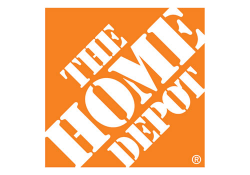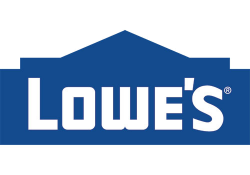
 Perpetual homeowner’s insurance is a rather rare insurance option most of us don’t ever consider for our homes.
Perpetual homeowner’s insurance is a rather rare insurance option most of us don’t ever consider for our homes.
Unlike traditional home insurance that is paid annually–usually by a mortgage company out of an escrow account–perpetual home insurance requires a single up front payment and covers your property perpetually. When you don’t need the coverage anymore, your deposit is returned to you.
How Much Does Perpetual Insurance Cost?
In the simplest terms, you could say perpetual insurance is free. You make a one-time payment (called a deposit premium), and when you no longer need the coverage, the deposit premium is returned to you.
But the simplest terms really don’t capture the essence of the proposition.
The deposit required for perpetual insurance is usually 15-20 times the annual cost of traditional insurance. The perpetual insurance company invests the deposit and uses the proceeds of investment (e.g., interest and dividends) to cover claims, administrative costs, and of course, profits. Since the insurance company has your deposit, you lose the ability to invest it in alternatives, like stocks, bonds, savings accounts, or CDs.
For example, if an annual insurance policy costs $1000/year, a perpetual insurance equivalent would probably require a ~$16,000 deposit.
Why Choose a Perpetual Homeowner’s Insurance Plan?
The best reason to choose a perpetual homeowner’s plan is for the tax benefits.
Payments for traditional homeowner’s insurance are not tax deductible. That is to say, if you pay $1000 / year for insurance and you are in a 25% marginal tax bracket, you must earn $1,333 dollars to pay the insurance plan. (25% of $1,333 is $333 – the portion that is taken by the Government).
The non-cash insurance benefit from a perpetual insurance company, however, is not taxed as income to the recipient.
All things being equal, a perpetual insurance company offers the opportunity to pay for your homeowner’s insurance tax-free.
Another reason to choose perpetual insurance is the fixed rate/$1000 of insurance that often accompanies a perpetual insurance policy. This allows you to purchase additional insurance as your property value increases at a pre-defined purchase rate.
What Are the Risks?
While it may at first seem that the $15,000 deposit premium is the most significant component of the risk, it is not. As with any insurance decision, the most important question is whether the company is prepared to pay in the event of a substantial claim.
This is a question that should be asked of all insurance companies, both traditional and perpetual. It would serve a purchaser well to investigate the company and its financial performance before signing up.
Fortunately, in the United States there are considerable capital retention regulations placed on most insurance companies that provide additional guarantees to the insured.
That said, the $15,000 deposit is still at risk with the company. Unlike with traditional insurance companies where you are only risk is in the event of a claim, with a perpetual company you constantly have the deposit premium at risk.
Essentially, you are gaining the tax and fixed purchase-rate benefits at the expense of increased risk.
Evaluating Perpetual Insurance Investment Performance
If we assume perpetual insurance costs 16 times an annual insurance policy, that means an average tax-free return of 6.25%. If you’re in the 25% tax bracket, this is equivalent to an 8.31% return.
You can then compare this with other taxed and tax-free options (like municipal bonds), to determine whether the investment makes sense.
Of course, the 16x assumption is important. If the number rises, to say, 25X, it may be better to invest in something else and simply buy the traditional, annual option.
Perpetual Insurance vs. Traditional Insurance
Given that you are investing a sizable lump sum of money into a single company, we think perpetual insurance makes sense only for those people who have:
- More than $100,000 in non-home, non-retirement investment assets.
- Are in a tax bracket at least 25% (the higher your bracket, the bigger the advantage).
- View their perpetual policy as a component of an overall, coordinated investment strategy.
- Have no high-interest credit card or other debt.
- Are willing to put in the effort to evaluate the insurance company.
For everyone else, we think it doesn’t make sense to tie up such a large portion of investable assets into a single investment vehicle.
What do you think? Do you have perpetual insurance? Would you consider it for your home?
(photo: powi)







What a timely article!
My insurance is coming up for renewal soon and I did not even know this option existed. Great research work!
I will definitely consider this option for the tax benefit.
Hmmm I had never even heard of this option until now. Something to think about for sure. Do all (or most) insurance companies offer this option?
old article, but still relevant. I’ve had this type of home insurance since 1986. Made one claim since, they paid promptly. I have had two increases in my deposit. One for the value of my home and another to cover home additions. Both increases were very modest and paid for in 1986 rates. Can’t say enough good things about it.
What company do you use?